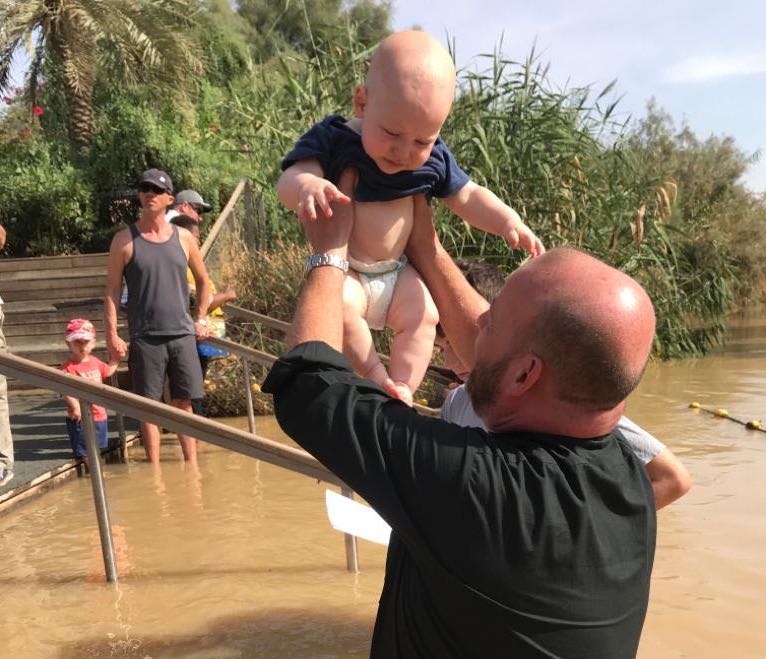Latest from the Newsroom

October 21, 2019 - 6:30am
 On Friday, I baptised my six month old baby boy in the River Jordan. What greater joy than for a priest to christen his own child in the place where Jesus himself was baptised?
On Friday, I baptised my six month old baby boy in the River Jordan. What greater joy than for a priest to christen his own child in the place where Jesus himself was baptised?
Amongst many warm and witty responses on Twittter, there were also quite a few from those who obviously find infant baptism terribly offensive. For atheists of the Richard Dawkins variety, infant baptism is a form of child abuse, a way of imposing beliefs upon a defenceless child far too young to make up their own mind. Interestingly, there is also a Christian version that is the flip side of this very same objection: that it is only proper believers, those who have made the decision for themselves, who should be baptised.
Both objections share the same basic premise: that the essence of religious commitment is religious belief. The idea here is that faith is all about the intellectual assent to a series of basic propositions about the nature of reality. On this model, to be baptised is to be accepted within the community of the Church on the basis of one’s assent to these propositions. And if you can’t properly assent, you can’t properly join.
Theologically speaking, the problem with this model is that it pictures the choosing individual as being at the centre of the baptismal drama, that baptism happens at the initiative of the chooser. But in theological terms, the initiative isn’t ours. The initiative is God’s love, into which we all are invited to be immersed. Being loved and included within a human family is not something we wait for the child’s assent to — now that really would be child abuse. Likewise, with God’s family.
But there is also a decidedly modern, and highly problematic, notion of choosing that is behind both objections — that choice is the first move in our proper formation as human beings. We might call this the liberal objection, given how liberalism makes choice the founding move in human identity.
But this is philosophically bonkers when we come to think about it. We do not choose how to be brought up; rather, how we are brought up is how we learn to choose. We do not choose the language we have been taught — it would take a certain sort of crazy to decide not to teach a child a language until they are old enough to decide for themselves which language they preferred. If, heaven forbid, someone did that to a child, on what basis would a dumb wordless teenager possibly be able make such a decision? Choices make sense only against the background of a pre-existing horizon of significance. In other words, there are some things that necessarily precede choice and, on the basis of which, choosing is made possible.
My problem is much more with adult baptism. Because with adult baptism it is too easy to succumb to the fantasy that Christianity is all about me; my choice, my decision, my orthodoxy. But the whole point about faith is that the initiative isn’t ours to take. Faith is more basic, more fundamental, than a simple one-off act of choice. Which is why what you choose to believe, your doctrinal orthodoxy, isn’t anywhere near as important to faith as is so often assumed. God’s love is not triaged out on the basis of our score in some theology test.
Much better to think of faith as the appreciation that the world doesn’t revolve around me or you. And thank God for that.









Join the discussion
Join like minded readers that support our journalism by becoming a paid subscriber
To join the discussion in the comments, become a paid subscriber.
Join like minded readers that support our journalism, read unlimited articles and enjoy other subscriber-only benefits.
Subscribe